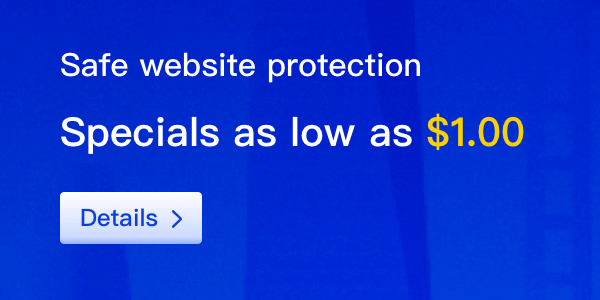In the digital age, the security of e-commerce websites is of paramount importance. With the rise of online shopping, cyber threats have become increasingly sophisticated, making it essential for businesses to go beyond basic security measures like SSL certificates. This blog post will explore advanced security measures that can help protect e-commerce sites from malicious attacks, ensuring the safety of both the business and its customers.

Understanding the Importance of E-commerce Security
E-commerce security is not just about protecting sensitive customer information; it also involves maintaining the integrity of the website and building trust with users. A data breach can lead to significant financial losses, legal repercussions, and damage to a brand's reputation. As such, businesses must implement comprehensive security strategies that encompass various aspects of their online operations.
Implementing Multi-Factor Authentication (MFA)
One of the most effective ways to enhance security for e-commerce websites is through Multi-Factor Authentication (MFA). This method requires users to provide two or more verification factors to gain access to their accounts, making it much harder for unauthorized users to breach the system.
MFA can include something the user knows (like a password), something the user has (like a smartphone app or a hardware token), or something the user is (like a fingerprint or facial recognition). By implementing MFA, e-commerce platforms can significantly reduce the risk of account takeovers and protect sensitive customer data.
Regular Security Audits and Vulnerability Assessments
Conducting regular security audits and vulnerability assessments is crucial for identifying potential weaknesses in an e-commerce website's security infrastructure. These assessments can help businesses understand their current security posture and highlight areas that require improvement.
Using automated tools and engaging third-party security experts can provide valuable insights into vulnerabilities that could be exploited by cybercriminals. Regular audits should be part of a proactive security strategy, ensuring that any discovered vulnerabilities are addressed promptly.
Utilizing Web Application Firewalls (WAF)
A Web Application Firewall (WAF) is another critical component of e-commerce security. A WAF acts as a protective barrier between the web application and the internet, monitoring and filtering incoming traffic to prevent malicious attacks such as SQL injection, cross-site scripting (XSS), and other web-based threats.
By implementing a WAF, e-commerce websites can protect themselves from common attack vectors, ensuring that customer data remains secure. WAFs can also provide real-time monitoring and reporting, allowing businesses to respond quickly to any potential threats.
Encrypting Sensitive Data
While SSL certificates encrypt data in transit, it's equally important to encrypt sensitive data at rest. This means that any information stored on servers, such as customer payment details and personal information, should be encrypted to protect it from unauthorized access.
Using strong encryption algorithms ensures that even if a cybercriminal gains access to the server, the data remains unreadable without the appropriate decryption keys. Businesses should also implement strong access controls to limit who can access sensitive information.
Educating Employees on Security Best Practices
Employees play a crucial role in maintaining the security of e-commerce websites. By educating staff about security best practices, businesses can create a culture of security awareness. Regular training sessions on topics such as phishing attacks, password management, and safe browsing habits can empower employees to recognize and respond to potential threats effectively.
Implementing security policies that outline acceptable use, incident response procedures, and data protection measures can further strengthen an organization's security posture.
Conclusion
As e-commerce continues to grow, so do the threats associated with it. Businesses must take proactive steps to enhance their security measures beyond standard practices like SSL certificates. By implementing Multi-Factor Authentication, conducting regular security audits, utilizing Web Application Firewalls, encrypting sensitive data, and educating employees, e-commerce websites can significantly reduce their vulnerability to cyber attacks. Prioritizing security not only protects businesses but also builds trust with customers, leading to long-term success in the competitive online marketplace.






















